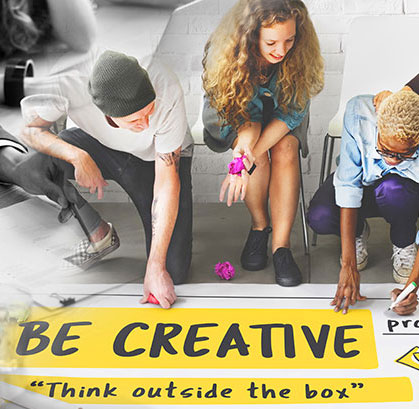

THE BALANCING ACT.
CREATIVITY IN A CORPORATE WORLD.
Need toothpaste? Milk? How about new towels or a picture frame for your grandma’s birthday gift? Maybe even a cute outfit for your weekend plans? We all know there’s one place where we can go and cross off all those items on our shopping list: Target. It’s the go-to store for students, young professionals, families, and kids. With their trusted in-house brands like Up & Up, Room Essentials, and Simply Balanced, Target meets the needs of all their customers from the smallest one to the oldest.
While creating brands for a well-known company, such as this one, may be the dream of many designers, it’s still the accepted idea that ‘corporate’ and ‘creative’ don’t coincide.
However, creative Director, David Hartman, feels this perception is changing. He has been leading Target’s Brand Design Lab team for over two years now, focusing on the untapped aspects of Target’s in-house brands and how to increase their potential.
Hartman points out brands like IBM, Pepsi, and even AirBnB as examples of companies that value the role design plays in the business’s success. They see it as a vital ingredient to differentiate their brand among the competition, and the public eye in general. As a result, designers need to adjust their vision of success.
While a designer may feel corporate America is not the place to grow, they may be wrong. According to Hartman, working for a large corporation can allow a young designer to grow and gain a lot of experience. Working directly with hyper-disciplined business leaders and understanding exactly how to work with them can make the designer stronger in the long run. There are tight deadlines that need to be met that can be as little as five weeks but, at the same time, the teams own ongoing management of their brands which lasts years.
As a designer, working in a large corporation, you have to learn how to effectively communicate the relevance of your work to the business model and end goal. Creativity has freedom and you’re able to design pieces that you’re proud of but you also have to do the work that needs to be done. Although there may be a lot of steps along the way, maintaining the balance will allow you to thrive and be successful.








